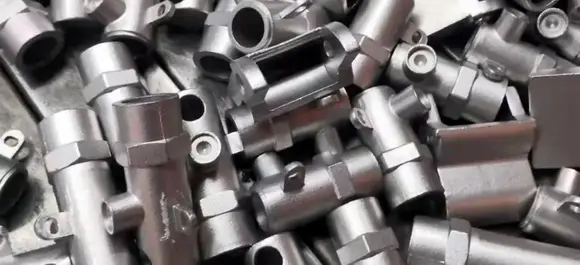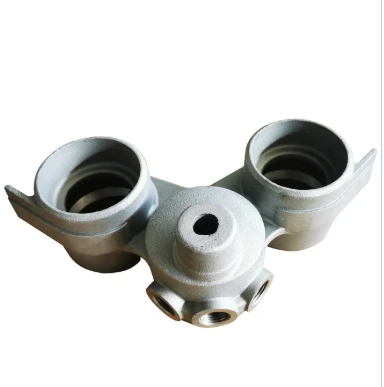Mobile:+86-311-808-126-83
Email:info@ydcastings.com
English
Premium Aluminium Die Cast Manufacturers Precision & Rapid Service
- Introduction to modern die casting processes
- Technical advantages of pressure die casting
- Comparative analysis of leading manufacturers
- Advanced material selection considerations
- Custom engineering solutions overview
- Industry-specific implementation cases
- Final considerations for procurement decisions

(die cast manufacturers)
The Critical Role of Contemporary Die Cast Manufacturers
Industrial manufacturing continuously evolves through die casting innovations. Industry-leading die cast manufacturers
now utilise proprietary simulation software to reduce prototyping costs by 40% compared to traditional methods. This technological progression proves essential for components requiring exceptional dimensional stability. Automotive OEMs report 18% weight reduction in structural components when using advanced aluminium pressure die casting techniques.
Technical Advantages of Precision Pressure Casting
High-pressure injection systems achieve remarkable production speeds - complex parts form in under 90 seconds with wall thicknesses as fine as 0.6mm. Recent metallurgical breakthroughs permit tensile strength exceeding 380 MPa in aluminium die casting alloys. These advancements enable thinner, stronger components while reducing material consumption by 22-30%. Leading aluminium die casting manufacturers now implement thermal management systems that improve cooling efficiency by 45%, significantly extending mould lifespan.
| Manufacturer Specialisation | Clamping Force Range | Tolerance Standards | Component Weight Range | Annual Production Capacity |
|---|---|---|---|---|
| High-volume automotive | 900-4,500 tons | ISO 8062 CT6-CTG7 | 0.05-35kg | 12 million units |
| Precision aerospace | 250-1,600 tons | ASME Y14.5M | 0.01-18kg | 750,000 units |
| Medical equipment | 100-800 tons | ISO 13485 | 0.005-5kg | 5 million units |
Material Science Advancements
Modern aluminium die casting manufacturers increasingly adopt hypereutectic alloys offering 15% increased hardness and enhanced wear resistance. Surface porosity has decreased from industry-average 1.2% to under 0.3% through vacuum-assisted systems. The growing implementation of AlSi10Mg alloys demonstrates remarkable heat dissipation properties - thermal conductivity improvements of 25% benefit electronics enclosures requiring critical thermal management.
Custom Engineering Solutions
Specialist die cast manufacturers develop proprietary modular tooling systems reducing changeover time from typical 6 hours to under 75 minutes. For low-volume production, manufacturers create unit cost structures competitive with conventional methods down to batches of 500 units. Advanced simulation protocols enable first-article success rates above 92% through virtual process validation. Complex components featuring internal channels and multi-directional slides become manufacturable without secondary operations.
Implementation Across Key Industries
Automotive applications demonstrate how aluminium pressure die casting manufacturers enable structural battery housings meeting IP67 standards while achieving 40% part consolidation. In consumer electronics, flagship smartphones incorporate intricate EMI-shielded frames manufactured with 0.05mm precision. Industrial machinery manufacturers report 30% operational cost reduction using integrated die cast hydraulic blocks instead of multi-part welded assemblies. Medical imaging equipment increasingly relies on complex RF-resistant housing solutions.
Strategic Considerations for Die Cast Manufacturing Procurement
Choosing the optimal aluminium die casting manufacturers requires evaluating technical capabilities against project constraints. Industry data indicates 78% of procurement professionals prioritise technical expertise over unit pricing alone. Die cast manufacturers offering comprehensive engineering support from material selection through post-processing reduce product development cycles by 5-7 weeks. Leading providers implement quality management systems that document every production variable, ensuring consistency across 99.6% of components manufactured. The continuous advancement of intelligent pressure casting systems promises further improvements in structural capabilities while maintaining cost efficiency.

(die cast manufacturers)
FAQS on die cast manufacturers
Q: What are die cast manufacturers?
A: Die cast manufacturers specialize in producing metal parts using the die casting process. This involves injecting molten metal into molds under high pressure to create precision components for industries like automotive and electronics.
Q: What do aluminium pressure die casting manufacturers offer?
A: Aluminium pressure die casting manufacturers provide high-precision manufacturing of complex parts. They utilize advanced machinery to inject molten aluminium into dies, ensuring dimensional accuracy and efficient mass production capabilities.
Q: How do aluminium die casting manufacturers ensure quality?
A: Aluminium die casting manufacturers maintain quality through strict adherence to international standards like ISO 9001. They implement rigorous testing, such as X-ray inspections and surface finish checks, to guarantee defect-free components.
Q: What industries rely on aluminium die casting manufacturers?
A: Key industries include automotive, aerospace, and electronics for lightweight, durable parts. Aluminium die casting manufacturers supply essential components such as engine blocks or heat sinks due to aluminium's strength and corrosion resistance.
Q: Why choose aluminium die casting over other methods?
A: Aluminium die casting offers superior cost-effectiveness for high-volume production. It delivers complex geometries with tight tolerances, reducing secondary machining needs while providing lightweight, robust final products.
-
Materials Used in Manufacturing Cap End Pipe FittingsNewsNov.24,2025
-
Material Properties of CF8M CastingNewsNov.24,2025
-
How to Inspect Pump Cap Ends for DamageNewsNov.21,2025
-
Backward Curved Impeller – Efficient Airflow Solutions for Industry | YD CastingsNewsNov.21,2025
-
Automobile Water Pump - Efficient, Quiet, Durable & ElectricNewsNov.21,2025
-
Impeller for Pumps – High-Efficiency, Durable, OEM-ReadyNewsNov.21,2025











